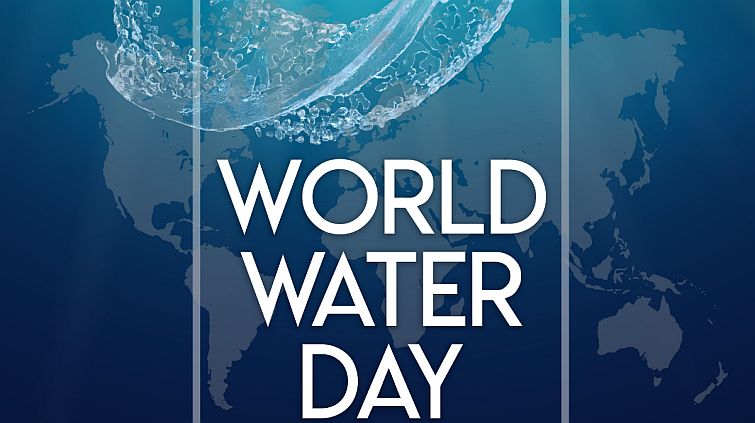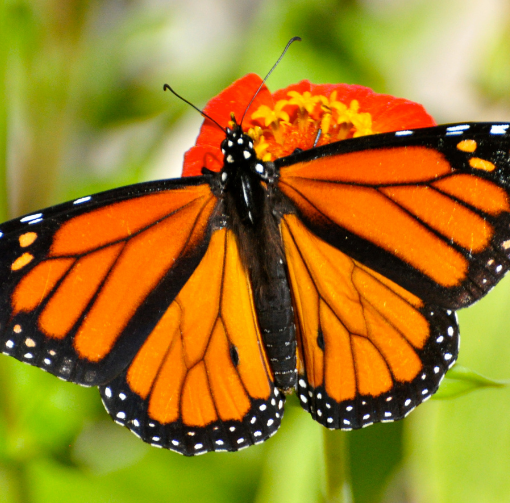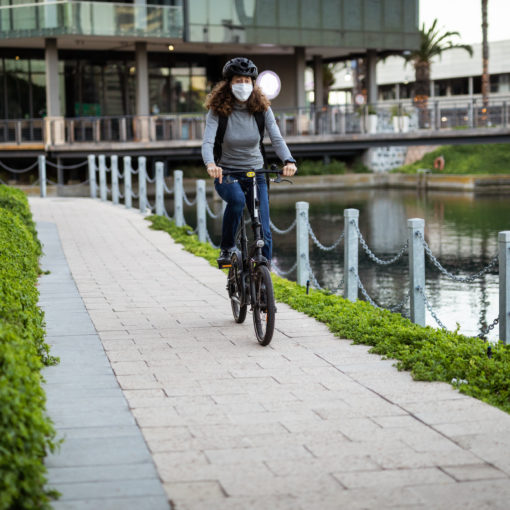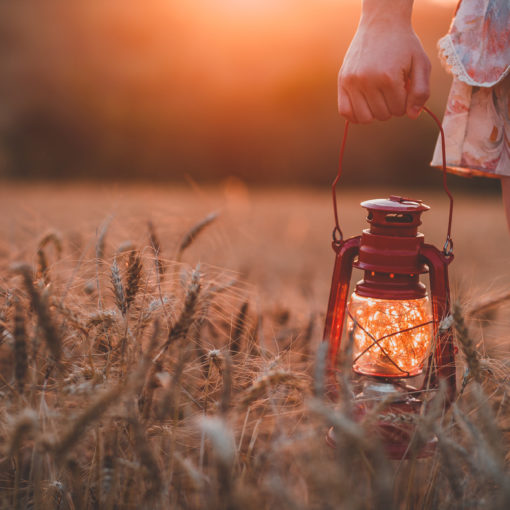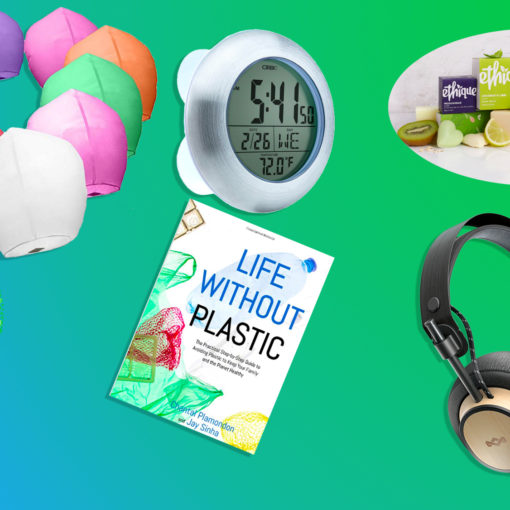Share This Article
Clean water and sanitation is part of our ‘water’ focus for March 2021. Water management is one of the 7 Pillars of the Wayaj Hotel Sustainability Rating (HSR) and it is essential to human life.
It is World Water Day on March 22nd and we are delighted to interview Fiona Jeffery, Founder and CEO of Just a Drop, which has had such a significant impact on the lives of some of the most vulnerable people in the world.
Can you tell us briefly about the mission of Just a Drop?
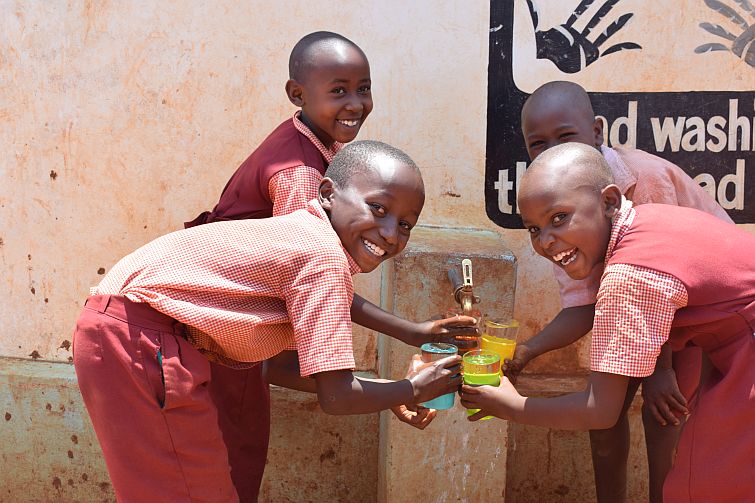
Just a Drop’s mission is to provide communities across the world with access to safe water, sanitation and hygiene education and provide solutions that are holistic, sensitive to local environmental, social and cultural conditions and ensure they are sustainable in the long term. Just a Drop impacts 12 out of 17 of the UN Sustainable Development Goals. So in addition to SDG 6 -Access to Water, Sanitation and Hygiene education, it impacts SDG’s 1-5, Poverty Reduction, Zero Hunger, Good Health & Wellbeing, Quality Education, Gender Equality, Decent Work and Economic Growth and SDG 13 Climate Action to mention a few.
Having provided access to safe water, Just a Drop also runs development and community empowerment programmes which include developing skills and knowledge in food security, menstrual hygiene management, soap making, book keeping and micro finance.
We are a community-led development organisation NOT an aid organisation. We want to empower communities to be able to help themselves and flourish.
What inspired you personally to set up Just a Drop?
In 1995 I was running the Global Travel & Tourism Industry event, World Travel Market, and I felt that the travel industry could do a lot more to support communities in destination and protect the places they took customers to. If they didn’t do this, I also felt they would be at risk of also destroying their own business model. I’d just become a Mum and that also caused me to see the world differently. I decided to identify an environmentally sound cause that impacted communities across the world that could improve the lives of communities. The cause became water. At the time a child was dying from dirty water every 17 seconds (its now every 2 minutes). I also learnt that at the time just £1 could deliver safe water to a child and so that’s why I called it Just a Drop – because the principal was if each of us gave a little collectively, we could make the world of difference.
Could you give us more detail about the type of projects you support?
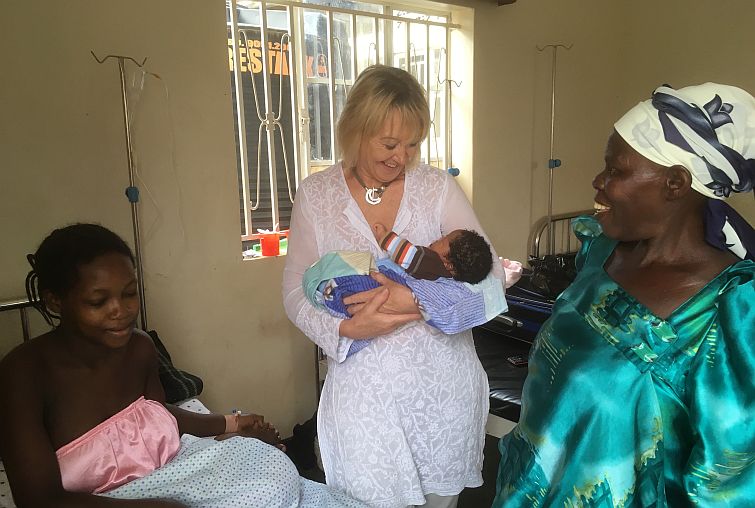
We currently operate in 6 countries across Asia, Africa and Latin America. Cambodia, India, Kenya, Nicaragua, Uganda and Zambia. We install safe water supplies into remote rural villages & communities, schools and health centres. You would be shocked at how many health centres function without adequate access to safe running water and sanitation. The pandemic has also brought into sharp focus the importance of water and the need to wash our hands to stay safe. In the UK we have been very worried about protecting the NHS, but in the developing world, health centres struggle to cope every day of the week. As well as installing water systems amd building latrines we train health centres and schools how to make soap so they can keep staff, patients and school children safe and the excess soap they sell to generate an income.
We install bore holes and hand pumps and run piped systems into households. We build and help people build their own latrines, we train communities how to grow drought resistant crops once they have access to a suitable water supply, with crops they can better feed their families and with the excess crops they can trade to generate an income.
Once we’ve installed water and latrines into schools we train the children in proper hygiene practices and educate boys and girls as well as teachers about menstruation. This helps get rid of unfounded suspicions and taboos and encourages girls to stay in school and further their education after they’ve hit puberty.
All this takes time and an ongoing commitment and it also means that the solutions we support are relevant to the climatic and social environment, so each country in which we operate will have different solutions.
Why is the work you do so important and what impact has Just a Drop had since you founded it?
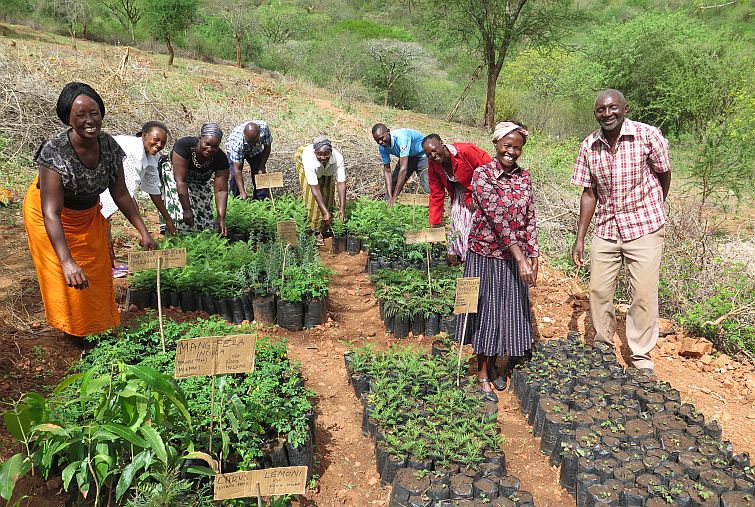
We say that “Without water life’s an endless struggle – with it almost anything is possible”. Having access to water is essential for life, it is key to helping children study better at school because they feel clean and are properly hydrated. It enables people to flourish because they feel well, can feed their families and aren’t sick because the water has made them ill. They also can’t afford medicines to deal with illness and we ensure we support people with disabilities and the elderly so we ensure no one is left behind.
It was calculated that women spend 200 million hours a day trekking for water. Not only are there safety issues with the risk of rape and abduction of children, it’s also time lost as they get involved in more income generating activities – they are caught in this interminable trap. By providing them with access to water close to their homes, they and their children are safer. Then by supporting them with small microfinance loans, it helps them to start small businesses such as chicken rearing, making bricks, opening hairdressing salons, selling market produce, or developing small holdings for rental. The women are motivated to improve their lives and simply want what we all want – for our children to be healthy, safe and to get a good education. They’ll do anything they can in their power, against the odds to achieve this.
Since we started, Just a Drop has supported over 1.7 million people in 32 countries across the world. But there is still so much to be done and we can only do what we have funds to achieve.
Can you explain how you select, set up and monitor the projects that Just a Drop funds?
We work with local partners in each country and then we have our experienced Programme team based in the UK who work with our team of expert volunteer engineers and hydrogeologists. The Just a Drop team work with the local team and communities to help devise the best solutions for the conditions to ensure we can create sustainable solutions. We are responsible for the effective due diligence of the project execution. When we are satisfied we have got it to a stage where we believe we can effectively deliver the project, the proposals are then further vetted and approved by the Board of Trustees. So there is extensive scrutiny. We don’t want to waste money and we need to ensure we can afford what we do, so our due diligence process, which includes evaluating the commitment demonstrated by the local community to ensure its success, is all part of this process. The Just a Drop projects are undertaken in conjunction with the local community so they become invested in the project and take tremendous pride from the achievement and are, as a consequence, prepared to do what it takes to look after it properly. Just a Drop also commits to monitoring all of its projects and programmes for a minimum of 7 years.
You have travelled to many areas to see the charity’s work. What are some of your most memorable experiences?
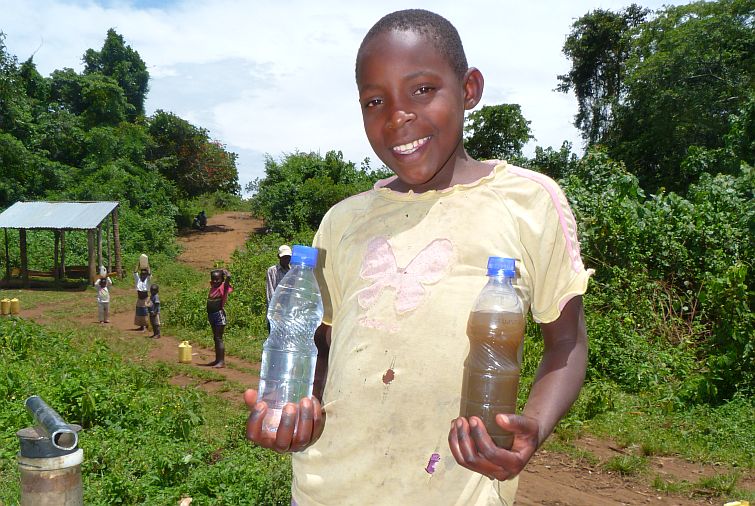
There are so many. Seeing a young 8-year-old girl called Carole struggle to fill a large jerry can – so heavy the weight of it nearly dragged her into the dirty pond in which cattle had been drinking and defecating. She struggled to put the large plastic container on her head and under the sheer weight and searing heat to climb a big hill was hugely challenging. The location was close to a lake which attracted fishermen and unwanted advances. Two months after our visit, a young nine-year-old girl was raped at the same spot. However, 7 months later, I received a photograph of Carole standing next to our new hand pump with a huge smile, holding two bottles in her hand – one with the original dirty water and another a bottle of clean water taken from the new village hand pump. That picture meant the world to me.
Another significant occasion was in Uganda visiting Namayumba Health Centre, servicing a population of 30,000 but it didn’t have enough water to operate. It relied solely on rainwater harvesting jars and so the water would run out. If an expectant mother was in labor, the midwife had to run outside of the hospital compound to a nearby community bore hole, queue for water and run back again. Remember also how heavy water is. There was no hospital incinerator so the waste was left on the outskirts of the compound but would be found by local dogs. The toilet block was truly disgusting, totally blocked, with faeces on the floor because it was used by the local town community as well as the patients. It was so awful I couldn’t take a photograph.
With the help of a generous donor, we installed a piped water supply with running water into all the hospital buildings and built a new latrine block with a recorded megaphone system reminding patients and visitors to wash their hands. We installed an incinerator, placed waste bins around the compound and built staff accommodation so doctors and nurses could stay on site rather than travel three hours a day each way to get to work and as a consequence often not be available for emergencies.
I remember holding one of the first babies born shortly after the completion of the project and feeling so relieved. We’d managed to do what we had- thanks to everyone’s efforts, our local team, the local mayor, hospital team, our generous funder and the dedicated Just a Drop team who all refused to be beaten by the challenges- what was achieved was transformational.
What are the biggest challenges to be faced in the future for clean water and sanitation, from both environmental and social aspects?
The impact of climate change is going to be devastating for many communities in the southern hemisphere. As places get drier and harder to live in, it will lead to further migration, famine and vulnerable livelihoods leading to increased poverty. Its critical that where possible water is captured and stored be it using rainwater harvesting methods or using the natural environment through the building of rock catchments, check dams or sand dams to protect and enhance the aquifer and available ground water.
When you were Chairman of World Travel Market you established World Responsible Tourism Day. Do you believe that, as the tourism industry regenerates post-covid, sustainability will really become an integral part of the industry?
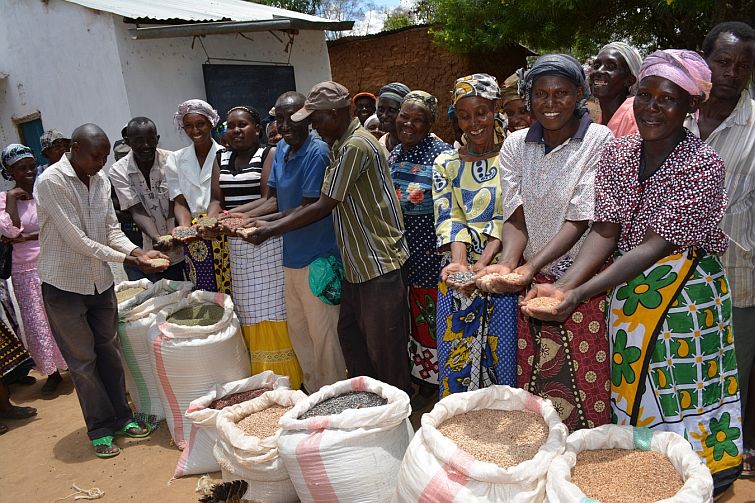
I do, but I have to say it’s been a long time coming. I launched the earlier version of World Responsible Tourism Day back in 1996 and very few people (no more than 30 people out of 50,000) were interested in the environment, and they were generally regarded as “ tree huggers”. But I genuinely believe that no one in the travel & tourism sector can ignore their environmental footprint and consider how best to manage and mitigate it moving forward. Don’t get me wrong, it doesn’t mean that everyone will act. Many won’t. But the important thing is it’s now on the agenda and I hope and attest that it will remain a key strategic industry issue for now and always.
If anyone reading this wants to support Just a Drop, either as an individual or a business, how can they get involved?
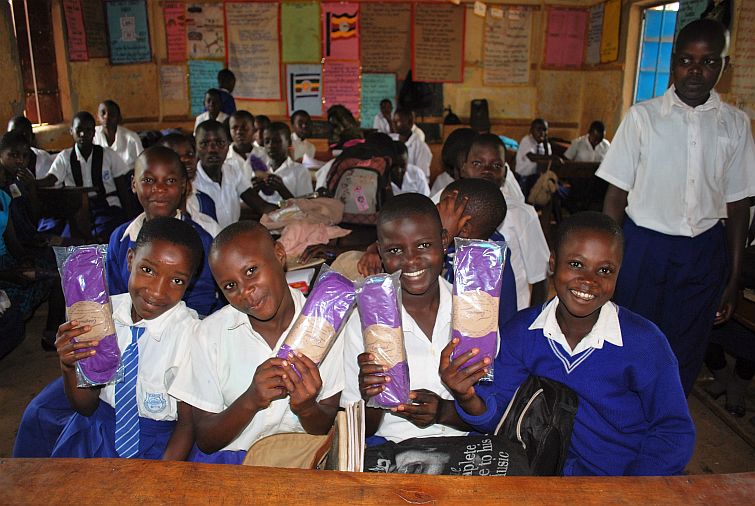
Just a Drop works on the principle it welcomes and embraces anyone interested in the cause and as I’ve said it doesn’t take a lot to make a difference.
- £3 can provide a child in Kenya with water for their entire schooling.
- £3 can help a family in Uganda access water and sanitation for a year.
- £5 can help a family in India access water and sanitation for a year.
It is possible to donate via our website www.justadrop.org and there’s the opportunity there to also become a regular donor.
If a corporate or trust please feel able to write to me at fiona@fionajeffery.com or Brendan.Hanlon@justadrop.org to explore working with us towards your own project.
No donation is too small and they are all greatly appreciated and we’ll keep you updated on progress from the field.

